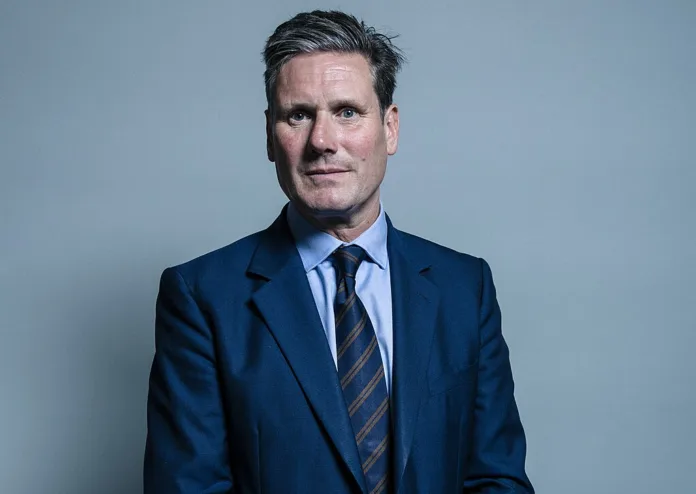Trade unions challenge Prime Minister’s decision to remove winter fuel allowance for pensioners, threatening Keir Starmer’s authority amidst ongoing controversies
The Labour Party’s annual conference in Liverpool took a contentious turn as leaders prepared for a pivotal vote regarding the government’s controversial cuts to the winter fuel allowance for pensioners. Sir Keir Starmer, the party leader, now faces a significant test of his leadership, with the decision threatening to alienate key supporters within the party.
Trade unions, particularly Unite and the Communication Workers Union, secured time at the conference to debate the removal of the allowance—up to £300 for 10 million pensioners. This decision came swiftly after the government’s election victory in July, aimed at saving £1.4 billion annually. Although the outcome of the vote won’t directly bind the government, a defeat for Starmer could severely undermine his authority.
As the conference opened, the atmosphere was anything but celebratory. Instead of rallying behind a rejuvenated party back in power after 14 years, delegates faced accusations of sleaze surrounding Starmer and his cabinet. The mood reflected a broader unease, particularly after 52 Labour MPs abstained during a recent House of Commons vote on the winter fuel cuts.
Embed from Getty ImagesCharity organizations voiced concerns that the cuts would leave many pensioners vulnerable during the harsh winter months, particularly as the allowance will now only benefit those on pension credit, effectively excluding many who may need it most. Starmer’s leadership is now under scrutiny; if he loses the upcoming vote, it would signal a significant rebuke on a critical government policy.
Unite, representing 1.1 million workers, has taken a vocal stance against Starmer’s leadership. General Secretary Sharon Graham expressed her desire for the Labour leader to reverse what she called a “cruel policy” and warned against returning to austerity measures. Despite being a long-standing supporter, Graham has scaled back the union’s financial contributions to Labour, illustrating the fractures within the party.
The political backdrop further complicates matters. Deputy Prime Minister Angela Rayner addressed the conference amid ongoing scrutiny regarding gifts received from wealthy donors, including a controversial five-day stay in a Manhattan apartment. Rayner maintained that she owed nothing in return for these gifts, asserting that such practices are commonplace in politics.
Despite the internal strife, some government figures believe that the ongoing debate will not significantly impact the party’s agenda. They argue that Labour will provide additional support to pensioners this year through state pension increases, attempting to pivot the narrative away from the cuts.
As the conference proceeds, the unions, which collectively hold 48% of the voting power, are gearing up for what could be a decisive moment for Starmer. With the atmosphere charged with tension and unresolved controversies, the outcome of this vote will undoubtedly shape Labour’s trajectory moving forward.
Analysis
Political Perspective
The upcoming vote at the Labour conference is a litmus test for Keir Starmer’s leadership amidst rising tensions within the party. By allowing trade unions to raise their voices against the winter fuel cuts, Starmer risks alienating his base, particularly those on the left who have grown increasingly disenchanted with the leadership. The pressure from unions like Unite could compel Starmer to reconsider his stance, reflecting broader divisions in the party over austerity measures. Moreover, the shadow of alleged sleaze looms large, potentially detracting from Labour’s narrative as it attempts to present itself as a credible alternative to the current government.
Social Perspective
This controversy reflects deeper societal debates about the welfare of vulnerable populations, particularly the elderly. The winter fuel allowance cuts not only affect financial security for millions but also symbolize a broader shift in government priorities that may neglect the needs of those most at risk. As pensioners face rising living costs, the removal of this allowance becomes a rallying point for social justice advocates who argue for greater support systems. The growing discontent among union members signals a shift in public sentiment towards more equitable policies.
Racial Perspective
While the winter fuel cut issue primarily affects older adults, its implications intersect with racial considerations, particularly regarding socioeconomic status. Many pensioners from minority backgrounds are disproportionately represented in low-income brackets. The debate surrounding the cuts may prompt discussions about the systemic inequalities that affect these communities, urging the party to address not only economic disparities but also the racial inequities that compound them.
Gender Perspective
The involvement of female leaders such as Angela Rayner highlights gender dynamics within the party. Rayner’s defence of her actions amidst the gift controversy indicates the unique scrutiny women in politics face. As issues like the winter fuel allowance disproportionately impact women—who often live longer and may rely more heavily on social support—the discussion around these cuts also serves as a reflection of gendered social norms and expectations regarding care and support for the elderly.
Economic Perspective
Economically, the cuts to the winter fuel allowance signify a broader trend toward austerity that could have lasting repercussions on the UK’s welfare system. The government’s drive to save money at the expense of vulnerable citizens raises critical questions about fiscal responsibility versus social obligation. The impact of these cuts will not only affect immediate beneficiaries but could also lead to increased healthcare costs as vulnerable populations struggle without the necessary support, highlighting a potential false economy.
